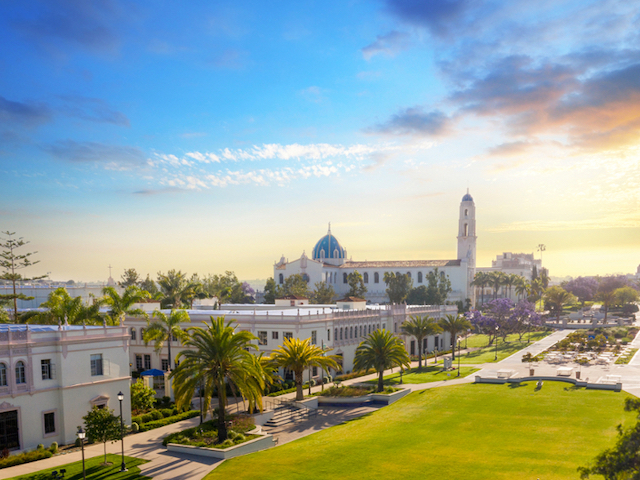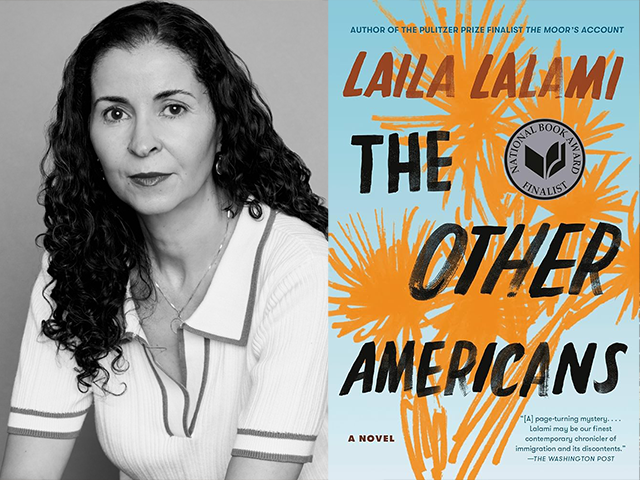Canada, U.S. Teams' Ideas Shine Brightest in Fowler Global Social Innovation Finals
The Fowler Global Social Innovation Challenge’s $57,000 Global Finals on Saturday night was a worldwide college student social entrepreneurship showcase. Starting with 44 teams representing more than 25 universities and 12 countries in all, the overwhelming takeaway based on results of the 2019 GSIC’s 13 finalists is that innovation is quite formidable among teams hailing from North American countries.
Hoola One, representing Quebec, Canada's Universite de Sherbrooke, was the top 2019 Fowler Global Social Innovation Challenge winner on June 15.
Of the 13 teams to reach the finals — the top 10 finalists were picked and a separate track for three teams rewarded for tire recycling innovation projects — 10 were from North America. Two were from Quebec, Canada’s Universite de Sherbrooke. Eight were from the United States — seven in California: two each from the University of San Diego and San Diego State, UC San Diego (one), San Diego-based New School of Architecture and Design (one) and Los Angeles’ Loyola Marymount. Michigan’s Ferris State University was the other U.S. representative.
North American teams ruled the day when Master of Ceremonies Taylor Harrell revealed the funding for winning teams as they earned $52,000 of the $57,000 total.
Hoola One, a machine that provides an effective solution to remove microplastics from beaches, won the top amount, $22,000, in the Changemaker Awards category. The team consisted of Samuel Duval, Jean-David Lantagne and Jean-Felix Trembley and Helene Moreau.
“We’re feeling very proud,” Duval said at the GSIC’s conclusion.
Added Lantagne: “At the beginning of this project about two years ago, you never know where it is going to bring you. This feels amazing. We know we have something that can make a social impact on the world.”
Changemaker Award runner-up, Truely, is a team of San Diego State students Joshua Munoz, a recent SDSU accounting and economics graduate and engineering major Austin Wulf. They were rewarded with $15,000 for their idea to create a new breed of pure and plant-made bioplastics to supplant traditional petrochemical plastic consumer products.
“It’s awesome to have the validation that (the judges) saw the next step of creating an alternative for plastic use. It’s a catalyst for us as we continue to move forward. Our goal is that when people think of healthy, sustainable plastic, they’ll think of Truely bioplastics,” Munoz said.
Wulf, who delivered the team’s 90-second pitch during Saturday night's program, said Truely’s success was fueled by their enjoyment of the experience of competing in the GSIC.
“When we first walked into this competition, we knew it was going to be something special because we saw (USD’s Center for Peace and Commerce) put a lot of effort into it,” Wulf said. “This is the most success we’ve had at a competition, but I think we learned the most, too, by talking to the judges, sharing our experiences and talking to all of the other teams.”
Hoola One and Truely received their awards from USD President James T. Harris and Ron Fowler, former USD Board of Trustees Chairman and a longtime advocate for supporting higher education at San Diego universities. The most recent gift from Ron and his wife, Alexis, Fowler, is a collaborative effort between USD and Minnesota’s University of St. Thomas to support social entrepreneurship, the GSIC and its future.
The remaining funding winners were:
Soul Much, another San Diego State-connected team, reduces food waste by upcycling excess grains from national chain restaurants and turns it into nutritious vegan protein cookies. It earned $5,000 with $3,000 a result of winning the top prize in the Women Innovators track and also a top prize of $2,000 in the Live Audience Choice Award. The team consists of Reyanne Mustafa, Kristian Krugman, Jordan Ruiz, Dakota Lee and Alexis Oplinger Davis.
EcoRail (New School of Architecture and Design) and USD's QuakeSafe, which was pitched on Saturday by current Shiley-Marcos School of Engineering student Trey Stead, each received $3,000 in the Cal Recycle-sponsored Tire Recycling Innovation. Plastic Solutions (Ferris State) earned $1,000. Mobie Dock, an LMU-based idea pitched by Charity Waddy, earned $2,000 in the Women Innovators track. Another USD finalist, 2019 engineering alumnus Austin Hirsh's re:fresh smoothies, earned $1,000 as Audience Choice Award runner-up.
Three non-North American teams in the GSIC Global finals were Plastic Blocks from Ghana’s Heritage Christian College, Luna from South Korea’s Hanyang University and Sensibin from Trinity College Dublin of Ireland. Of the three, only Sensibin, earned funding, $5,000, in the Qualcomm Wireless Reach Track. Finalists who did give a 90-second pitch to the GSIC audience were Plastic Blocks, DeLeaves (Universite de Sherbrooke), Luna and Project Pangolin (UC San Diego).
Sustainability Projects Dominate Global Finals Finalists Field
Strength in North America representation wasn’t the only thing dominating at the GSIC. So, too, were the United Nations’ Sustainable Development Goals that 13 finalists picked to connect to their projects. The prerequisite for all entries into the GSIC was to align with one of the goals the UN collectively aims to achieve by 2030.
Global Final (13 teams) Finalists’ breakdown: Four teams aligned with Goal 12 (Responsible Consumption and Production), three represented Goal 11 (Sustainable Cities and Communities), two each went for Goal 13 (Climate Action) and Goal 9 (Industry, Innovation and Infrastructure). Goal 14 (Life Below Water) and Goal 7 (Affordable and Clean Energy).
All 44 GSIC teams' UN SDG breakdown: Goal 12: 10 teams; Goal 3 (Good Health and Well-Being): Eight teams; Goal 11: Seven teams; Goal 4 (Quality Education) 4 teams; Goal 13: Four teams; Goal 6 (Clean Water and Sanitation): Three teams; Goal 9: Two; Goal 14: two; Goals 16 (Peace, Justice and Strong Institutions), 7, 5 (Gender Equality), 8 (Decent Work and Economic Growth): One team each.
Virtual Presenters, Guest Speakers
One of the perks of being a finalist Saturday was the bonus opportunities teams had to present their ideas in a fast-pitch format to the audience. Saturday morning, the top 13 finalists each got to pitch again on Saturday morning to fine-tune for the evening.
But three teams, Ghana’s Plastic Blocks, Michigan’s Plastic Solutions and UCSD’s Project Pangolin, didn’t get the chance to feel what it was like to present in front of a live audience. All three teams spoke about their respective projects in a pre-recorded message.
One person who was live on the IPJ Theatre stage was Ahmen, a hip-hop MC artist and a nonprofit leader. His spoken word performance near the start of the show was inspiring and was geared to help the audience get in the right frame of mind for learning, absorbing and listening to the student presenters about their social innovations and coming away inspired by those who are wanting to make a difference in the world.
The event featured two Kroc School representatives on stage: Dean Patricia Marquez provided welcome remarks and some context for the nine-year competition the Center for Peace and Commerce has overseen since 2011 when Marquez was CPC director. Closing remarks were given by Jessica Aparicio, a 2018 Kroc School alumna from the Master of Arts in Social Innovation’s inaugural cohort and a 2018 GSIC entrant. In essence, Aparicio shared how her participation in the GSIC was a poignant learning experience for entrepreneurship, the process and about personal growth by doing.
Non-Saturday Finalists Gain Bonus Exposure
While Friday, June 14 was a full day of contestants’ pitching their 10-minute presentation to judges and a five-minute Q&A session, Saturday’s event opened with a one-hour opportunity for all teams — including the GSIC finalists — to get their innovation idea in front of the audience in the Kroc IPJ’s Garden of the Sky area.
This was a true opportunity to see the diversity of the GSIC entrants from around the world. Teams from Australia, Colombia, Mexico, Chile, Portugal, Peru, Rwanda as well as more teams from South Korea and the United States were at assigned tables.
At the start of the GSIC program inside the KIPJ Theatre, all teams, representing all countries, entered from a side door with music playing and many carried their home country’s flag to celebrate their participation as the audience cheered.
— Ryan T. Blystone
Contact:
USD News Center
news@sandiego.edu
(619) 260-4681




